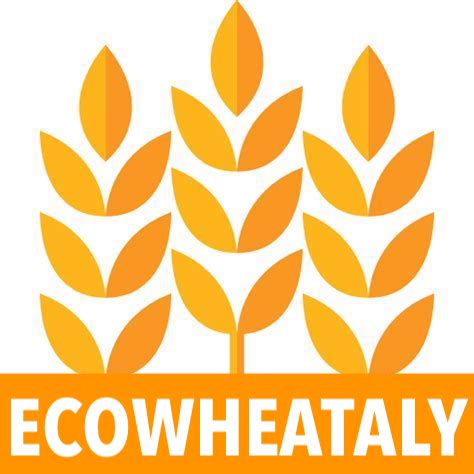Economic models at micro and macro scales will be implemented to explore Italian agriculture considering alternative scenarios of economic incentives/penalizations established by the Italian Government to orient farmers’ decisions.
In addition, the project will allow an evaluation of large negative international shocks, such as global monetary crises, pandemics, wars, or climate events.
More in detail, we will be able to identify the most enhancing policies in tranquil periods or to evaluate the departure from the environmental target when global adverse shocks downgrade sustainability in the government’s agenda or force it to revert to the past.
The first objective of the project (O1) is to build an agent-based model for the Italian wheat system that can be interfaced with a global model.
State-of-the-art for O1
In the recent past, the two partners of ECOWHEATALY (UDA and CNR) have developed an open-source computational model to simulate the international allocation of quantities and wheat price formation (Giulioni et al. 2019). Their results suggested several directions in which the model could be extended. One of them relates to farmers’ decisions on how to arrange their production system. In this respect, an extended model would include both the effects of production decisions on prices and the reverse effect of prices on decisions on how to produce. This reverse effect involves several crucial aspects of environmental sustainability.
Progress beyond state-of-the-art for O1
he objective of the project is to design and implement an agent-based model for the Italian Wheat System which can handle several types of farming strategies and the possibility of switching among types. The model will provide, through bottom-up aggregation, the national production, and several other environmental variables.
The Italian Wheat System (IWS) software will interface with the GEM supplying the Italian wheat production. The environmental variables output by IWS will be used to perform the LCA analysis.
The second objective (O2) is to assess the effects of economic policies (green).
State-of-the-art for O2
The issue of green policies is nowadays at the center of public opinion’s attention. A significant role is played, for example by climate finance, which emerged starting from the Conference of Parties – COP21 in 2009 as a tool to tackle climate change, promote and support mitigation and adaptation. This view has recently been reinforced by the European Green Deal. Besides the use of climate funds in the Agricultural sector, several EU countries have, on the one hand, already adopted green economic policies and engaged in the set-up of financial regulations to scale-up green finance and promote a low-carbon transition. On the other hand, the new emerging climate scenarios force policymakers to face urgent challenges in financing national production and sustainability priorities.
Progress beyond state-of-the-art for O2
The research on which measures could be put in place to “greening” the agriculture sector, as well as their effects on the implementation of mitigation and adaptation policies are, however, still in their infancy (D’Orazio and Popoyan, 2019).
ECOWHEATALY would be a contribution to the understanding of the effects of measures, with a special focus on the promotion of green investments and the resilience of the wheat production branch.
The third objective (O3) is to evaluate the effects of global shocks on the sustainability of Italian wheat production.
State-of-the-art for O3
The subsequent appearance of global shocks after 2007 (the great recession, the crisis of national debts, the pandemics, and the Russia-Ukraine war) has drawn significant attention to the resilience of national and international systems. However, tools to assess and measure the effects of such negative shocks seem to be missed.
Progress beyond state-of-the-art for O3
The project aims to fill this gap by analysing different scenarios and the effect on the sustainability of different government orientations including the possibility to return to the past.
A special role is given to policies to prevent negative effects i.e., to make the system more resilient.
The fourth objective (O4) is to build a framework to be used for further investigation after the project ends.
State-of-the-art for O4
A significant part of the project is to build a computational model to handle a real-world complexity that would be difficult to account for in a traditional model. The adoption of agent-based modeling blossomed in recent decades because of the possibility to handle this complexity. Despite this advantage, this methodology did not supersede the traditional techniques. A reason for that is due to the difficulties for other researchers to enter the details of a complex model. Often, the computer code used is not made available, and even when it is, the documentation on how to run or modify the model is absent or poor.
Progress beyond state-of-the-art for O4
At present, there is no model able to endogenously handle the bidirectional effect of a country’s production on international prices. The possibility of simulating the reverse effect of global price level on farmer decisions as well as its connection with local and EU economic policies in the agricultural sector represents a step forward in the framework of the present literature. Furthermore, the model framework developed in this project could be used by interested researchers to analyse other products in different countries.
For this purpose, the code produced in ECOWHEATALY will be developed in a diffused programming language and it will be associated with detailed documentation, open-source and easily obtainable code, the possibility to be run on a personal computer as well as on a larger scale.

